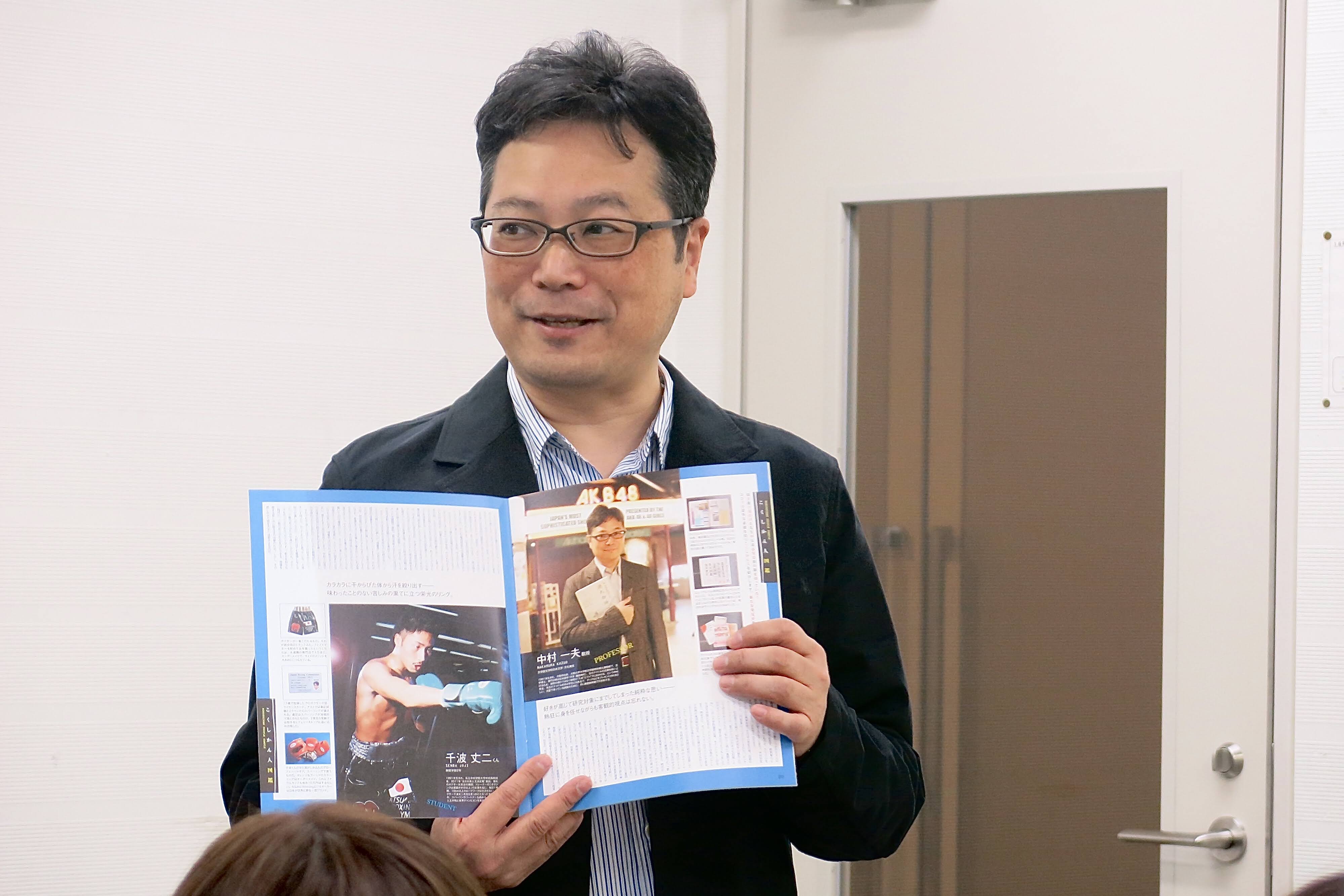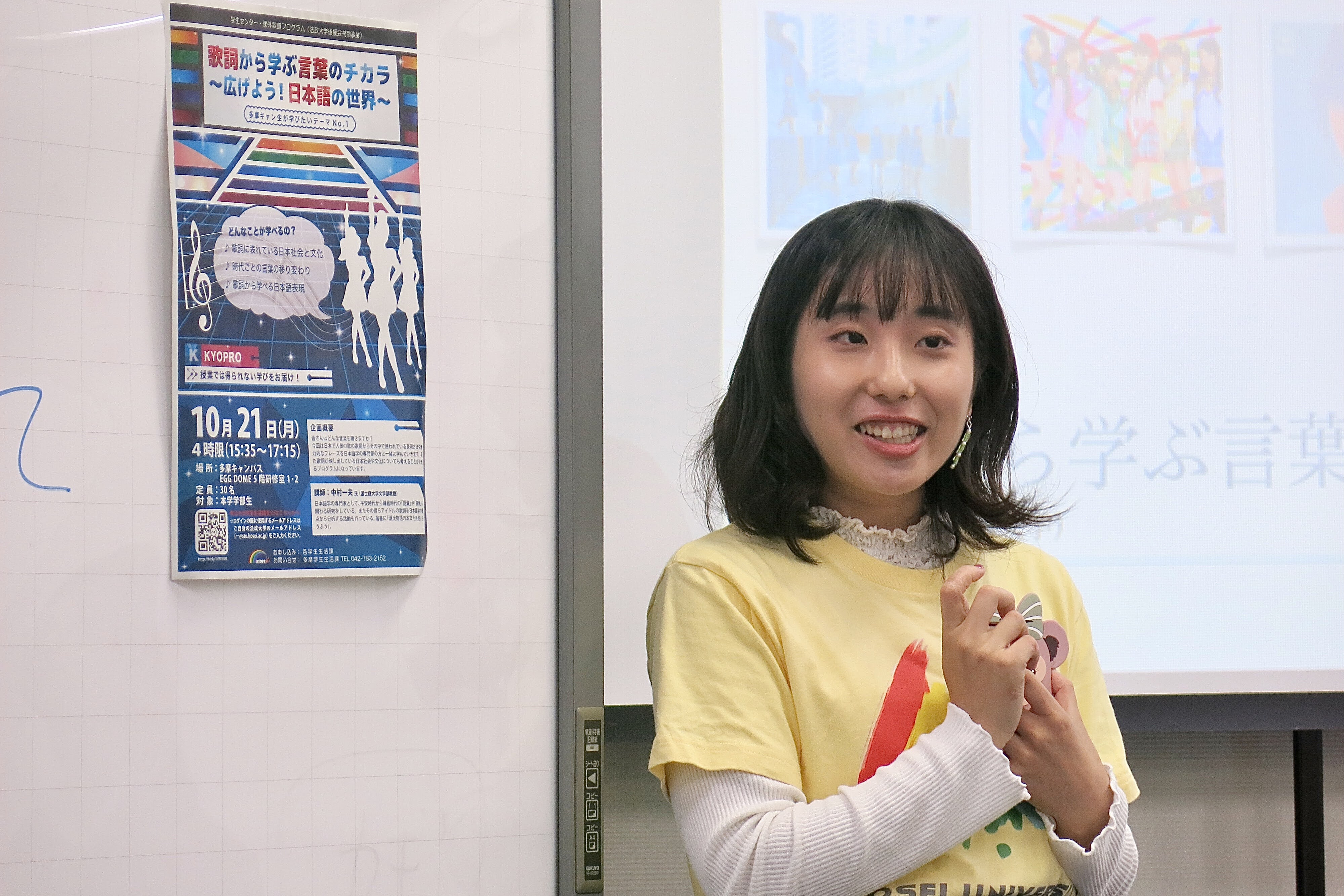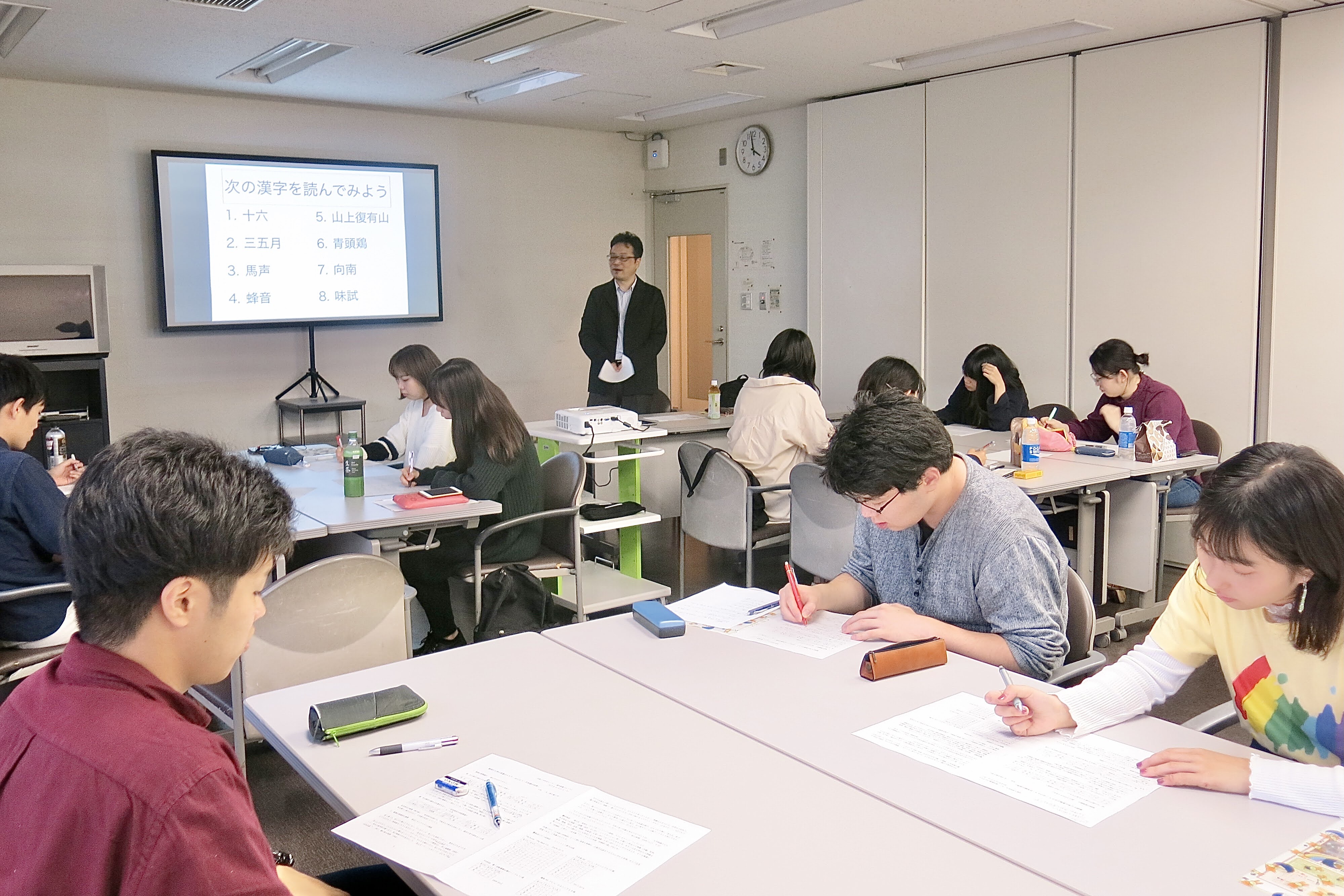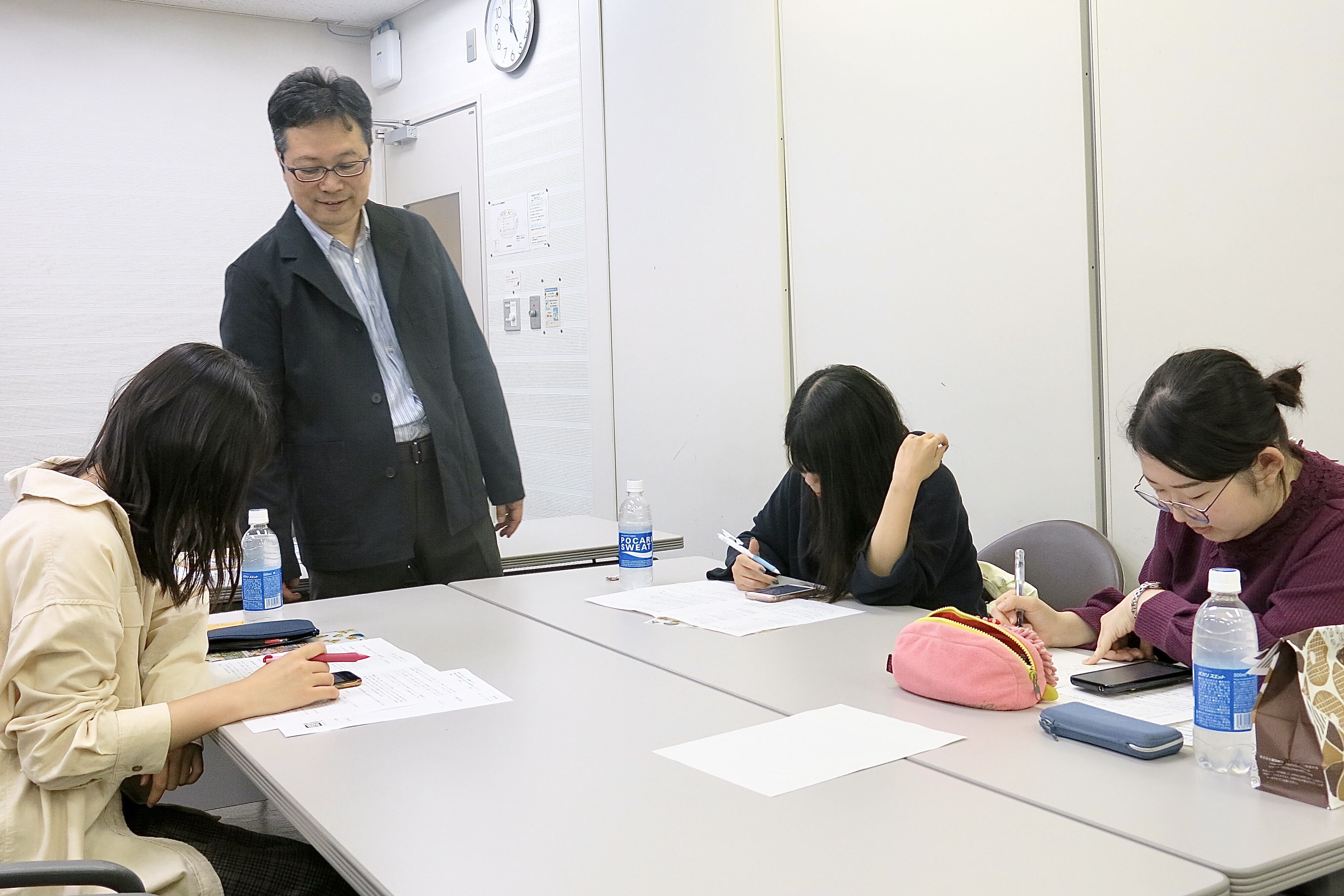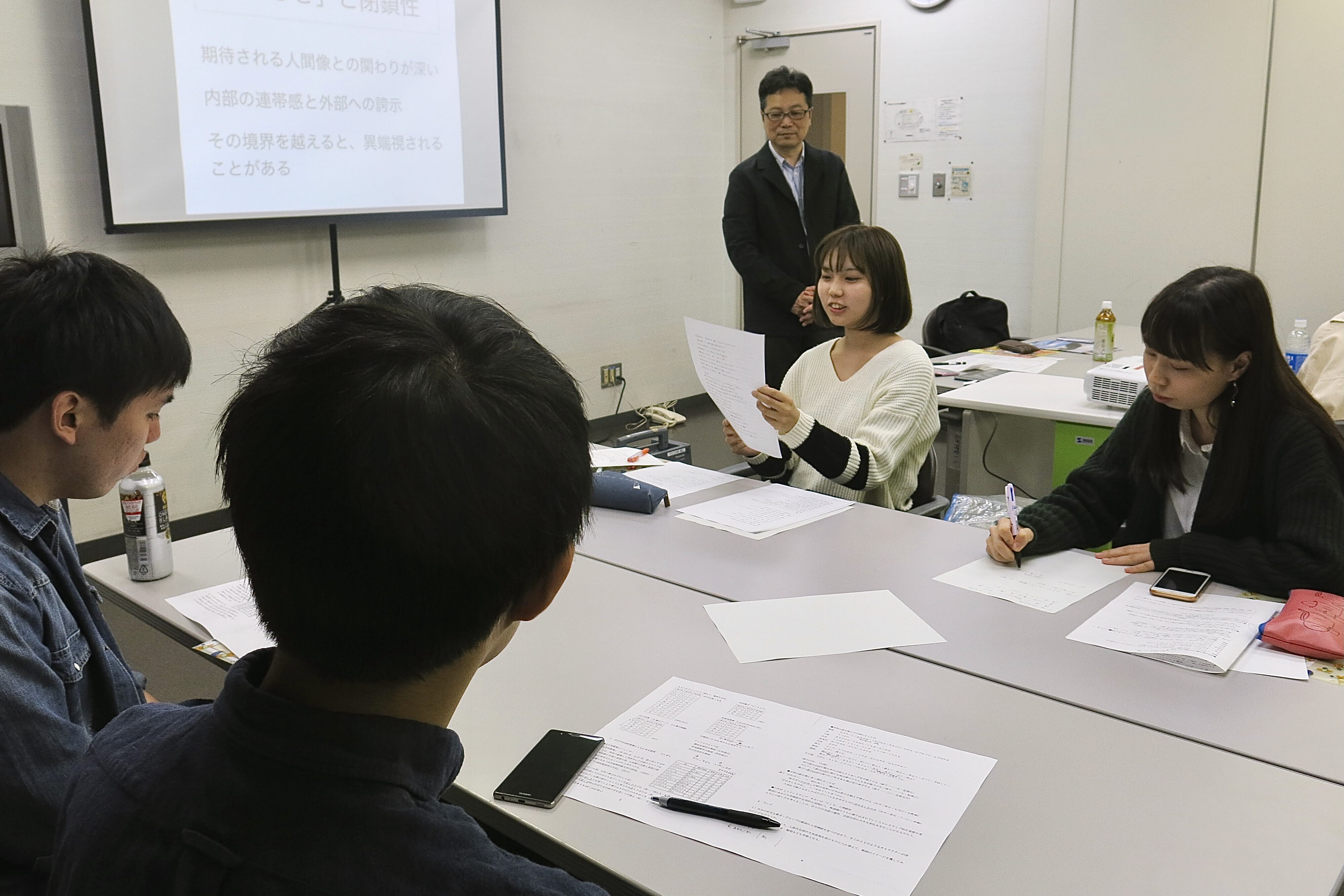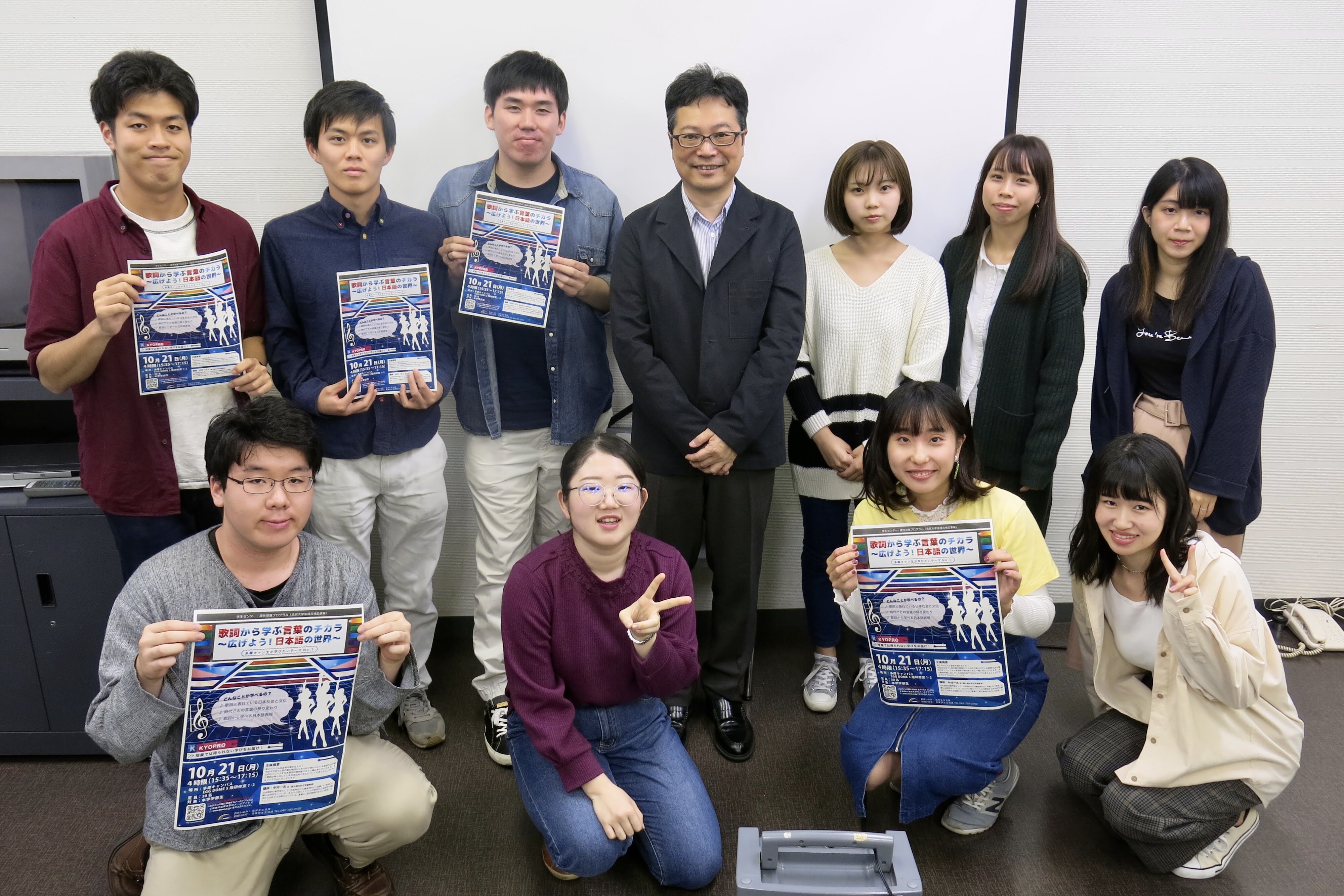Academic Year 2019
The Power of Words through Lyrics - Let's Expand the World of Japanese! The World of Japanese Language
October 21, 2019
Academic Year 2019Hosei University Student Center, Extracurricular Education Program (Hosei University Supporters' Association Support Program)
1. date and time
Monday, October 21, 2019, 15:35-17:15
2. Place
EGG DOME, Tama Campus Training Room 1 & 2
3.Number of participants
10 persons
4. Lecturer
Kazuo Nakamura (Professor, Faculty of Letters Kokushikan University)
Report by KYOPRO Staff
On October 21, 2019, the Extracurricular Education Program "The Power of Words Learned from Lyrics: Let's Expand! The World of Japanese Language" was held.
Songs that we listen to everyday without thinking use a variety of Japanese expressions. The lyrics of songs are often written in the form of metaphors, repetition, inversion, and other clever word choice not used in everyday conversation. In addition, the lyrics may reflect the language of the time period in which the song was written, or the social background and culture of the song. By using lyrics with these various aspects, we thought it would be possible to learn the depth of the language from a variety of perspectives. This program is designed to familiarize participants with the Japanese language through familiar lyrics and to stimulate their interest in learning the language.
The impetus for the lyrics-based program came from a "Learning Needs Survey" conducted by KYOPRO student staff for students at Hosei University's Tama Campus. Based on the results of the survey, we made a new attempt to offer a learning experience more in tune with the demands of Hosei University students.
The specific content of the day's program was the study of the culture of guesswork and the use of role words to construct the worldview of songs and artists, as seen in the Manyoshu anthology and contemporary songs. The program also revealed that songs from the Kokin Wakashu (Anthology of Ancient and Modern Japanese Poetry) often express the gender perspective of the time, and that the social and cultural background can be read from the lyrics of the songs.
The invited lecturer was Professor Kazuo Nakamura of Kokushikan University's Faculty of Letters. While specializing in the study of the Japanese language since the Heian period, he himself analyzes idol lyrics and JPOP lyrics, so his lecture was in line with the students' learning interests. During the lecture, students were able to enjoy learning by actually listening to JPOP and idol songs we know well and analyzing lyrics of their own choosing. The lecture was interactive and there were many occasions for students to express their opinions, which I believe deepened the participants' understanding. I was impressed by the participants' eagerness to take notes and the number of questions they raised after the lecture.
We hope that this program will help the participants learn about the power of Japanese expressions and increase their interest in people and society through language learning.
Report by KYOPRO staff] Miwa Komatsu ( Department of SociologyFaculty of Social Sciences 3rd year)


